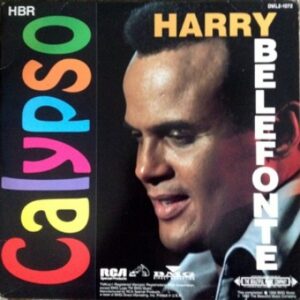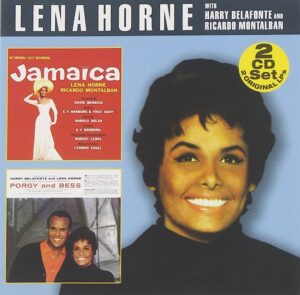|
Getting your Trinity Audio player ready...
|
Reading Time 8 mins
May 30, 2023
“My activism always existed. My art gave me the platform to do
something about the activism.”–Harry Belafonte.
Harry was so many things but never enough, for he set his standard much higher than stardom. His legacy illuminates and inspires us in his afterlife. From music to film, Harry broke records and became the industry standard–becoming the first recording artist to go platinum with his monster album Calypso, which caused a stir in Trinidad as it was labeled “The King of Calypso.” 
Harry is an EGOT (Emmys, Grammys, Oscars, and Tony) recipient, a rarity even among highly talented performing artists. But Harry was also outspoken about Black Lives and may have helped pave the way for #blacklivesmatter. Harry cozied up to “socialists” and socialites and called out celebrities for not doing enough for racial equity. Would today’s #cancelculture standards have canceled Harry? Would Harry receive standing ovations or vocal protests at Florida’s State College-Manatee-Saratoga, which recently fired its Director of Diversity and Inclusion? Would Governor DeSantis, “The Grand Wizard,” and fake presidential aspirant ban Harry from speaking in Florida—even today?
Why is Harry such a beloved icon anyway? In our current media landscape, where people are famous for being famous, it’s hard to imagine a Harry Belafonte. A man who sang and danced his way to the height of Hollywood but whose legacy as a Civil Rights Leader eclipses his most significant “hit,” Dayo? How is this possible? In a world of one-hit wonders, Harry’s biggest hit was his decades-long knockout punch to racism. Like Muhammad Ali, Harry floated like a butterfly and stung like a bee.
Harry was woke before the word woke…
Before woke, a movement and lens through which to see the world for what it is and for what it should be–a state of mind and a call to action to stay aware and vigilant against the status quo, systems of oppression, and the daily drip of distractions–Harry personified the term.
Yet, Harry strung us along with dashing good looks, smooth dance moves, and a voice dipped in honey. But all the while, he fastidiously metamorphized from the cocoon of Hollywood into a butterfly, hypnotizing us as he spread his wings into the far reaches of global human rights struggles.
“An Anthem The World Loved.” Harry B.
Like many others worldwide, growing up in Brooklyn, NY., in the late 80s and early 90s. I instantly fell in love with “Day-O.” The infectious counting (Lift six-foot, seven-foot, eight-foot bunch) and refrain (Daylight come and we want to go home) has no haters, just happy children and adults at birthday parties, slumber parties, and other gatherings in the name of joy. Peak Dayo ubiquity came from the Academy Award cult-classic Beetlejuice (1988)–a whimsical fantasy horror movie about a haunted house and a family’s desperate quest to realize the American Dream.
How did a Calypso song become the main attraction on the soundtrack of a Tim Burton blockbuster? A cast member, remembering music from his youth, suggested using a calypso such as “Yankee Dollar,” “Rum and Coca Cola” by Lord Invader, or “Day-O,” to which Belafonte adds: “What was particularly attractive was that [the producer] wanted to use my voice.”
What I find curious is the ubiquity of Day-O as an apolitical call to have fun instead of its actual meaning. It is much more somber and ironically would lead to sustainable opposition to capitalism as the song subtly champions workers’ rights and protections. Day-O though laden in patios, is not overly so that the song’s point gets “lost in translation.” The music mesmerizes with a catchy beat and whimsical call and response, but that prevents unsuspecting—even ‘woke’– listeners from responding to its call.
Work all night on a drink of rum
(Daylight comes, and we want to go home)
Stack banana ’til the morning come
(Daylight comes, and we want to go home)
Come Mister tally man, tally me banana
(Daylight comes, and we want to go home)
Lift six-foot, seven-foot, eight-foot bunch
(Daylight comes, and we want to go home)
A beautiful bunch of ripe banana
(Daylight comes, and we want to go home)
Hide the deadly black tarantula
(Daylight comes, and we want to go home)
 One doesn’t have to be an ethnomusicologist to decode Day-O for its deeper meaning. Despite the cheerful delivery, a man has to sip rum to endure the back-breaking work of cutting, stacking, and delivering bananas to the “tallyman.” The tallyman counts the number of bananas, and the worker has two fears–deadly tarantulas and the tallyman. The worker has been working all night and wants to get paid and go home. I suppose the “joy washing” of Day-O is a metaphor for many of the horrors of colonialism, slavery, and racism. It’s as if trumpets hailing “God Save the Queen” loudly drown out the cries of the “subjects” of the British Empire.” “The sun never sets” is not necessarily a good thing, nor is Day-O’s lesson.
One doesn’t have to be an ethnomusicologist to decode Day-O for its deeper meaning. Despite the cheerful delivery, a man has to sip rum to endure the back-breaking work of cutting, stacking, and delivering bananas to the “tallyman.” The tallyman counts the number of bananas, and the worker has two fears–deadly tarantulas and the tallyman. The worker has been working all night and wants to get paid and go home. I suppose the “joy washing” of Day-O is a metaphor for many of the horrors of colonialism, slavery, and racism. It’s as if trumpets hailing “God Save the Queen” loudly drown out the cries of the “subjects” of the British Empire.” “The sun never sets” is not necessarily a good thing, nor is Day-O’s lesson.
The genius of Belafonte–who did not write Day-O; Irving Burgie, who cites Paul Roberson as his role model, did–is his ability to covertly embed the real horrors of post-colonial sharecropping into in a ‘frivolous’ song which was so popular that it was on Billboard’s Top 200 list for six weeks in 1988. Day-O received widespread radio play throughout that and subsequent years though Belafonte’s version was originally released in 1956.
Little wonder that in 2011, when Gwen Ifill of PBS NewsHour asked Harry to reflect upon the impact of Day-O, he responded, “A song about struggle, about black people in a colonized life doing the most grueling work, I took that song and honed it into an anthem that the world loved.”
Regardless of one’s metaphorical banana, the song is a call to resist exploitations and points to Harry’s ability to be deceptively malleable in the face of recalcitrant racism. Thus, due to his presence in popular culture, generations were introduced to Harry’s humanitarianism through activism.
In the 1950s, when Jim Crow, blackface, and lynching took center stage, Harry’s album Calypso was an irresistibly southing serenade of West Indian warm breezes and dances that made him a household name. Despite racism, Harry became the most beloved and successful recording artist of his time and used his status to fight for a better future for Black and oppressed people domestically and abroad. His folk overtures elicited standing ovations at The Waldorf Astoria, the Greek Theater in Los Angeles, and other storied venues worldwide.
Although Harry shimmered, he was not always treated like gold. During a gala at the Waldorf Astoria in 2013, he said, “The Waldorf used to be one of the most racist pieces of real estate in America.” Recalling a 1956 performance at the hotel, Harry mentioned that he was diverted to a back room of the hotel to avoid “racial contamination.” Observing the progress The Waldorf and its parent company Hilton have made since then, Harry noted: “I now have the lifetime right to stay in any Hilton hotel anywhere in the world for free if I would just keep my mouth shut and not tell this story,” as he related the forbidden story to an enraptured audience. This is quintessential Harry, at his trickster best, having a sense of humor and the last laugh when enduring racism yet, exploding its remnants.
Harry realized that his success didn’t mean he would experience freedom, but that didn’t stop him from subverting capitalism to achieve liberation. In 1958, despite selling millions of records, he, like many other Black people, was denied housing by racist landlords in New York City. One building, 300 West End Avenue, in New York, the bastion of ‘liberalism’ would never be the same. After management declined his application based on racism, he bought the building by creating a fake real estate company “to cloak his identity.” He welcomed several friends, including the indomitable Lena Horne, who moved into the penthouse. Harry again demonstrated that sometimes the most potent form of dissent is to hit them in the pockets.
Harry could pivot his career from song to film, but early in his career, producers often presented him with demeaning roles, which he repeatedly declined. He considered several parts, including Porgy and Bess (1959), to be racialized distortions of Black humanity. When Harry did find a role to his liking, his charisma and cheekbones pierced the cinematic universe in films including Carmen Jones (1954) and Island in the Sun (1957), making Harry one of the most sought-after men in Hollywood.
 But the Civil Rights Movement lured Harry away from movies into the real-life struggle for equality and social justice. He was mentored by fellow actor and singer Paul Roberson, a renowned performer who refused to affirm before the House Un-American Activities Committee that he was not a communist. Yet despite Roberson’s stance, Harry was brave and associated openly with Dr. Martin Luther King Jr. and the Student Nonviolent Coordinating Committee, leveraging his income to support noble causes.
But the Civil Rights Movement lured Harry away from movies into the real-life struggle for equality and social justice. He was mentored by fellow actor and singer Paul Roberson, a renowned performer who refused to affirm before the House Un-American Activities Committee that he was not a communist. Yet despite Roberson’s stance, Harry was brave and associated openly with Dr. Martin Luther King Jr. and the Student Nonviolent Coordinating Committee, leveraging his income to support noble causes.
Despite his social justice work, Harry revisited Hollywood, albeit behind the scenes, to start his own production company HarBel Productions. He wasn’t trying to compete with Hollywood but rather subvert it and, by extension, audiences by surfacing issues regarding race and oppression in films including Odds Against Tomorrow (1959), The World, the Flesh, and the Devil (1959). However, perhaps Harry’s most political tryst in Hollywood came after an invitation to host the Tonight Show for a week.
In 1968 while the fight for Civil Rights raged on in the streets in America and the Vietnam War blazed abroad, Johnny Carson, the host of the innovative and beloved late-night show, passed the baton to Belafonte to interview Dr. Martin Luther King, Bobby Kennedy, Nipsey Russell, Lena Horne, and others.
Harry was the first Black person to host a late-night TV show and hence be in the living rooms and on the hearts and minds of many Americans during a segregated and volatile time in American history. While flags were burning and angst was rising about how America would integrate, Harry became an unofficial Black ambassador as his broadcast showcased the depth of intellectual, artistic, political, and moral aptitude of his guests. Harry’s stint on the Tonight Show was the highest-rated week in its history, with millions tuning in and inadvertently inviting his charm and incisive views on racism to leave a surprisingly non-bitter aftertaste. Harry was palatable but not a pacifier regarding the future of race relations in America and took the Tonight Show opportunity to catalyze change.
Harry was essential to UNICEF and “We Are The World,” and countless other pro-human rights causes. He spoke freely, criticized loudly, and led a life of activism by example. Belafonte was Anansi the Spider, cunning, ever outsmarting and outmaneuvering the unwitting and unwilling. He was the bane of entrenched racism, always aware of the poisons of apathy, ignorance, and naïveté to dissuade the masses from action.
Thus, at every turn of his career, Harry was beckoning us to wake up. While some Caribbeanites might argue that Harry Belafonte was never “The King of Calypso,” many freedom-loving people worldwide would agree that Harry Belafonte is “The King of Woke!”
 Kanene Ayo Holder is an award-winning artist and certified leadership and diversity coach dedicated to inspiring change through creativity and empathy. Kanene received serval awards in the arts, education, and policy, including from The Colin Powell Center for Policy Study, Puffin Foundation for Activist Art, Coro’s Educational Leadership Collaborative, Thread at Yale University for Non-fiction Storytelling, and three fellowships from the National Endowment for the Humanities.
Kanene Ayo Holder is an award-winning artist and certified leadership and diversity coach dedicated to inspiring change through creativity and empathy. Kanene received serval awards in the arts, education, and policy, including from The Colin Powell Center for Policy Study, Puffin Foundation for Activist Art, Coro’s Educational Leadership Collaborative, Thread at Yale University for Non-fiction Storytelling, and three fellowships from the National Endowment for the Humanities.
Kanene has presented on the impact of racism at Columbia University, SXSW EDU, and The Schomburg for Research in Black Culture and has performed at various institutions, including Brooklyn Museum and off-Broadway at The Public Theater’s Joe’s Pub, among other venues. Kanene is excitedly partnering with Create Lab Ventures as their AI Integrations Manager for DEIGPT.

This is a wonderful analysis. Ms Kanene Ayo Holder presented a profound and informed tribute to the great man.
Fascinating and engrossing unpacking by Ms Holder. The value of this review is beyond the exemplary life of Harry Belafonte and his enduring legacy. The article values continuity of struggle. Quoting Harry, Holder highlights the common threads and condition of Africans in the so-called new world: “[Day-o] is a song about struggle, about black people in a colonized life doing the most grueling work, I took that song and honed it into an anthem that the world loved.” It is easy for uncritical thinkers to isolate Harry in time and space. The writer grasps the essence of Harry’s legacy of relentless international and intersectional struggles. The anti-woke agenda of Trump, Steve Bannon, DeSantis et Al is the modern-day equivalent of the anti-civil rights project of Senators Albert Gore, Sr. and J. William Fulbright, and Senator Robert Byrd, the latter filibustered the Civil Rights Act of 1964 for 14 hours non-stop. These were the leading Democrats of the day! Today it is the converse: leading Republicans are at the forefront of the anti-woke/anti-social rights charge! Ironically Joseph Biden gave the Robert Byrd eulogy and then Prez Obama attended his funeral. This is symbolic of hope the defeat of reaction. And this is the spirit of your instructive tribute. Harry and others have been eulogizing and burying racism. This article is a lovely soundtrack with a bell as an alarm ‘Day-O’, it’s past daylight! Help take us home! We anticipate more portraits from your rich pallet.
That is an interesting angle on the Man!